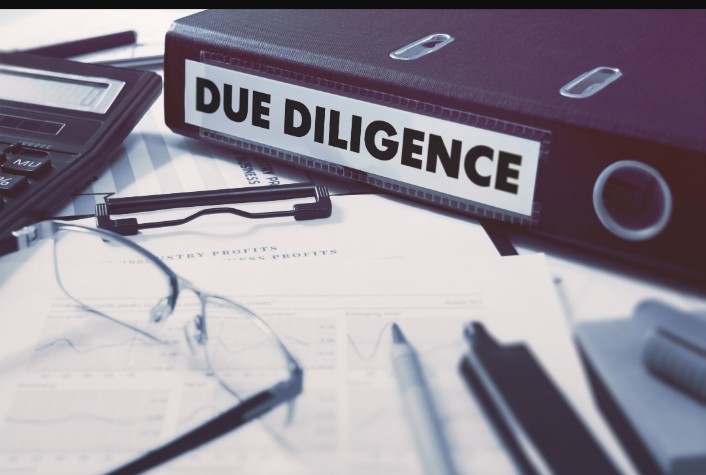In today’s fast-paced business environment, efficiency is crucial to success. One area where efficiency plays a critical role is in due diligence processes.
Due diligence is a comprehensive assessment conducted by organizations.
They assess potential risks and opportunities before entering into a business. Streamlining processes can save time, reduce costs, and improve decision-making.
In this article, we will explore strategies to increase efficiency. This will make well-informed decisions and maximize chances of success.
Define Objectives and Scope
Efficiency begins with a clear understanding of the objectives and scope. Then, when you have set them, all involved parties better understand what goal you need to finish. You can also track what resources are available.
Additionally, the well-defined scope will help develop a timeline. It maps out milestones and activities so that you meet deadlines. Further, you can ensure you are making progress.
You should communicate any changes from the timeline to all involved parties. Doing this will ensure timely delivery.
Define the purpose of due diligence, whether it’s a merger, acquisition, or investment. Establishing specific goals and parameters helps focus efforts on relevant areas. Besides, it prevents unnecessary time and resource wastage.
Determine the key factors that need evaluation. It may include financials, legal compliance, operational processes, and market analysis. By defining objectives, an organization will have a blueprint to follow.
Use Technology and Automation
Technology plays a vital role in streamlining processes. You can use digital tools and automation to enhance efficiency. The following are some of the ways advanced technology can help:
Streamline and Simplify Routine Tasks
Automating routine tasks will save time that you can use on more strategic tasks. This includes financial analysis, document reviews, and background checks. Also, they do this while reducing errors and costs.
Technology can also assist in simplifying many data management tasks. Examples are organizing data, enabling easy access, and improving analysis capabilities. Use them also to track tasks with automated notifications and open communication.
Artificial Intelligence (AI)
AI technology will reduce human errors as it ensures accuracy and consistency. Also, they can identify patterns, flag potential risks, and provide valuable insights. This results in improved decision-making.
The use of advanced visualizations can help identify areas of potential concern. It fosters collaboration and communication between various stakeholders. You can do this with dashboards and scorecards.
By taking steps to use technology and automation, companies can maximize performance.
Develop a Comprehensive Checklist
A comprehensive checklist is essential to ensure efficiency in processes. A well-crafted checklist should guide all aspects of the process. List them from stage one of research to documentation and validation.
The checklist should include appropriate areas for consideration. This may include the identification of potential liabilities, risks, and opportunities. You can also have there a review of determinative documents and background checks.
Addressing any issues you found during this process should also be a part. You can also reorganize the division of tasks and responsibilities among team members. This can further increase efficiency.
Finally, you must review the checklist. Ensure all steps are being taken, and adjust processes when necessary. Developing a list aims to cut time and financial burdens for the buyer and seller.
Efficient Collaboration and Communication
Organizations should collaborate and communicate. When you involve many parties, creating an efficient line of communication is essential. This means that each team must be aware of the various processes.
It is also essential to establish a clear chain of command. You need to assign roles and responsibilities to each team member.
Additionally, effective collaboration requires that everyone works together towards the same goal. Everyone should strive to be transparent and open. This involves sharing information and making sure each team has up-to-date information.
Finally, you should schedule regular check-ins and meetings. This ensures that all processes, tasks, and goals are on track.
Conduct Risk-Based Assessments
To carry out risk-based evaluations more quickly, streamlined due diligence processes are crucial. You should use process mapping to find inefficient processes. Look for regions where a certain risk is most likely to manifest itself.
You should also conduct risk-based evaluations. Consider the potential dangers. Concentrate on the areas that will have the biggest impact. Determine warning signs, legal and regulatory compliance, financial difficulties, and operational flaws.
You should involve the stakeholders in the procedure. Give them feedback forms so they may contribute to improvement plans.
By following these guidelines, you can make assessments more accurately reflect organizational needs. Processes will be effective, timely, and efficient thanks to this.
Engage With External Experts
External expert involvement can improve the effectiveness of due diligence procedures. External experts contribute specialized expertise, experience, and a new viewpoint to the evaluation. This will help your tasks move along more.
Finding and collaborating with competent third-party experts can contribute to greater transparency. This will speed up the procedure.
With the experts, you can learn concepts such as what does TRID stand for. It enforces more accurate real estate standards by consolidating disclosure forms. You should assemble a team to examine and assess documents.
Make sure that informed, skilled, and experienced people take charge. Look for somebody with experience performing due diligence.
Invest in getting access to other people and negotiating contracts with better conditions. You receive better results as a result of this.
You should also do a thorough investigation to track the supplier’s operations. You can hold them responsible and in compliance as a result.
Identifying and forming partnerships with qualified third-party experts can help increase transparency. This will streamline the process and deliver timely results.
Moreover, engaging these experts to take on projects will free up internal staff. As a result, they can focus more on core capabilities. This includes risk management, contracts, and compliance. It will also help in reducing the costs associated with compliance.
Improve Efficiency With Due Diligence
Increasing efficiency in due diligence processes is essential for organizations. Moreover, it can benefit those who aim to make well-informed decisions.
By defining objectives and using technology and checklists, you can streamline processes. You can also promote effective collaboration, conduct risk-based assessments, and engage external expertise.
These strategies do not only save time. It reduces costs but also enhances the quality of decision-making. This leads to more successful business transactions.
If you think this article is helpful, check out our other blogs!












